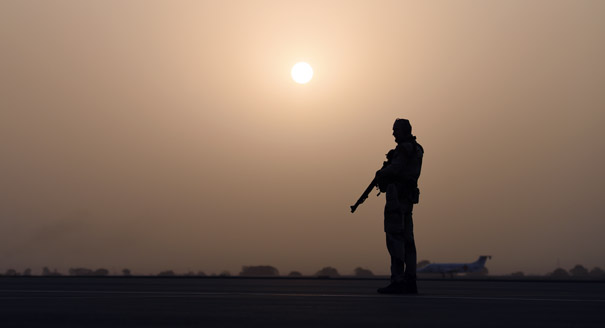Registration
You will receive an email confirming your registration.
As renewed rivalries set in among great powers and instability grows around the world, it is more difficult than ever to predict the nature of future conflicts. How will future wars between states be fought? How likely is great power conflict? How does growing violence within states impact the international system? And how does the potent combination of new technologies, resurgent authoritarianism and populism, and the changing role of international organizations affect these dynamics?
Join us for a conference that will bring together experts and young professionals to discuss the future of conflict. The conference will host two discussion sessions on dimensions of future conflicts as well as a careers panel. At lunch, participants will convene in small breakouts to reflect on challenges facing young professionals in international affairs. The conference will close with a keynote address from Christian Brose of Anduril Industries and the Carnegie Endowment, and a post-conference reception will follow.
Agenda
11:00 to 11:30 a.m.
Check-in
11:30 to 11:45 a.m.
Introduction
Thomas Carothers
11:45 a.m. to 12:45 p.m.
The Future of Great Power War
Mara Karlin, Andrea Kendall-Taylor, Patricia Kim
Moderator: Paul Stronski
As rivalry reemerges between the United States, Russia, and China, how likely are military conflicts involving the great powers? What pressure points might erupt into conflict, and how might potential hostilities play out?
12:45 to 1:45 p.m.
Lunch and Small Group Breakout Sessions
Small groups of conference participants will discuss which future conflicts will be most pressing for the next generation of policymakers, and how young professionals begin to address these global challenges.
1:45 to 2:45 p.m.
Thinking Beyond Borders: Understanding Intrastate Conflict
Laia Balcells, Anjali Dayal, Frances Z. Brown
Most violence in the world now happens within state borders. What do we need to know to understand and tackle this last frontier of violence?
3:00 to 4:00 p.m.
Careers Panel
Desha Girod, Andrew Kim, Jon Bateman
Moderator: Usha Sahay
Is a PhD important for policy work? Do I need to work on Capitol Hill to be taken seriously in DC? Is a consulting job worth the long hours? A panel of mid-career experts will share their advice on how to start a career in foreign policy on the right track.
4:10 to 5:00 p.m.
Keynote with Christian Brose
A Q&A will follow.
5:00 p.m.
Reception
Keynotes and Speakers
Christian Brose
Senior Fellow, Carnegie Endowment for International Peace, and Head of Strategy, Anduril Industries
Laia Balcells
Provost’s Distinguished Professor, Department of Government Georgetown University
Jon Bateman
Fellow, Cyber Policy Initiative, Technology and International Affairs, Carnegie Endowment for International Peace
Frances Z. Brown
Fellow, Democracy Conflict, and Governance Program, Carnegie Endowment for International Peace
Thomas Carothers
Senior Vice President for Studies, Carnegie Endowment for International Peace
Anjali Dayal
Assistant Professor of International Politics, Political Science Department, Fordham University
Desha Girod
Director of the M.A. in Conflict Resolution, and Associate Professor, Department of Government, Georgetown University
Mara Karlin
Director, Strategic Studies Program, and Associate Professor of the Practice, Johns Hopkins School of Advanced International Studies
Andrea Kendall-Taylor
Senior Fellow and Director, Transatlantic Security Program, Center for a New American Security
Patricia Kim
Senior Policy Analyst, China, United States Institute of Peace
Andrew Kim
Senior Analyst, Public Policy & Government Relations, Google
Usha Sahay
Managing Editor, War on the Rocks
Paul Stronski
Senior Fellow, Russia and Eurasia Program, Carnegie Endowment for International Peace
For inquiries, please contact Garrett Hinck.
